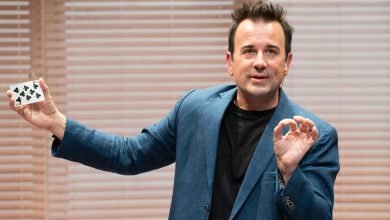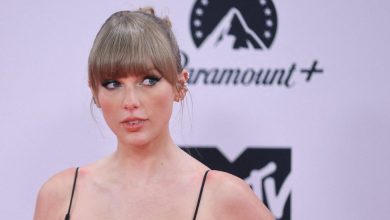The Dangerous Challenge of Making a Film About Aleksei Navalny

Aleksei A. Navalny, the imprisoned Russian opposition leader, has long been adept at using social media to directly convey political messages threaded with dispatches about the corruption and lavish spending of his country’s government officials, including some at the highest levels.
In August 2020, Navalny was poisoned while on a trip to Siberia to film a video about local corruption. Russian doctors blamed low blood pressure, saying no poison was found in his system. But under duress, officials eventually allowed him to be flown to Germany for treatment, where the poison was identified as a military-grade nerve agent from the Novichok family.
As he recovered there, Daniel Roher, a 28-year-old documentary filmmaker from Toronto, set out to use his own form of storytelling to shed light on the dissident: following Navalny for months as he conducted another investigation, this time into his own poisoning.
The resulting documentary, “Navalny,” available on HBO Max starting Thursday, is both a look at Navalny’s efforts to uncover the culprits who poisoned him as well as a call to action directed at his supporters in case of his imprisonment, a hypothetical that was quickly borne out.
In an interview via video call, Roher, who doesn’t speak Russian, discussed being in the room when Navalny tricked one of his poisoners into confessing and how to build trust with a man adept at using the media to craft his own narrative.
These are edited excerpts from the conversation.
When did you first hear about Navalny?
Before the poisoning and before his name was dominating global headlines, I knew that he was this opposition guy who was sort of funny and meme-y and was trying to fight corruption in Russia. What I knew of him is that he was able to utilize the internet, YouTube in a very innovative way.
Can you tell me how the project arose?
So often, making documentaries is the art of being in the right place at the right time. I was working on a totally different film. One of the producers of “Navalny,” Odessa Rae, and I were working with a journalist namedChristo Grozev who worked for [the international investigative site] Bellingcat.
The film that we were originally making together wasn’t going so well. In November 2020, Christo told us that he was pretty far along going down the rabbit hole of who tried to poison Navalny. Christo reached out to Navalny, and a week later, Odessa Rae, myself and Christo had an initial meeting with Aleksei. He sort of sized us up and sussed the situation out; we started working the next day. But I, of course, had to convince him that A: a documentary was a good idea, and B: I was the right guy to do it.
How did you develop that trust and relationship?
I was very aware in that first meeting that here’s a guy who has his own reach. He doesn’t need anyone’s help getting his message out. So I explained to him what I thought were the key differences between a documentary film and a YouTube video. I invited him to imagine the possible future where he goes back to Russia, as he told us he was planning on doing, and he gets arrested, and he’s languishing in prison a year from now. I suggested, “You need some sort of vehicle that can keep your name and your plight in the headlines.” I think he appreciated the chutzpah and energy that I brought.
He scoffed when you said he might be dead in a year, right?
The way Aleksei, I think, copes with the profound danger he finds himself in as a result of his work is by ignoring it. He and I connected over our shared sense of humor. His life is threatened routinely. And how does he cope with that? He laughs about it.
What measures did you take to protect yourselves? Were there any moments you feared arrest?
We wanted to keep this film as top secret as possible. We understood that the Russian state security apparatus already probably knew what we were doing and had an eye on us, but we just didn’t want to call too much attention.
Digital security was key. I didn’t send an email for a year. We did everything on encrypted messaging services. Our hard drives were encrypted. And I had to extend that to my family. I think everyone thought that was kind of like “Oh, that’s exciting. Our own little spy movie.”
What was it like being in the room for that critical scene when they try to reach —
[Sarcastically] Which scene are you talking about?
When they try to reach the people who poisoned Navalny? How did you know what was going on, given the language barrier, and how soon did you realize what was unfolding?
I could understand that the conversation was progressing in a way where the others [previous conversations] had not. I remember seeing Maria [Pevchikh, the chief investigator of Navalny’s Anti-Corruption Foundation], her expression, her shock was like — she doesn’t emote — but then her jaw unhinges and drops.
I immediately understand that something extraordinary is transpiring. And then this adrenaline courses through your body. I just remember that in that exact moment, checking focus. Focus was good. Checking battery on the camera. Battery was good. Plenty of space on the hard drive. Just keep shooting.
There was this sense of disbelief after the call. We were all hysterical. It was absolutely riveting.
As a filmmaker, what were you thinking?
This is the most important thing I’ll ever film in my life. This is a security breach at the highest levels of the Russian security services that is so embarrassing. I was like, the world, Russian people, need to understand what this is and what happened.
When Navalny’s team posted it online, did they use some of the same footage that you use?
This was a government agent on an unsecure line, in meticulous detail, explaining exactly how they tried to poison the leader of the opposition. And that was so stunning. There was no question in my mind about holding it for the movie. It had to go live immediately.
One of the reporters in the film talks about Navalny considering himself half a journalist. What was your experience with that?
Perhaps his greatest political gift is his ability to control and command social media. He wields it like a sculptor would wield clay, the way he drifts from TikTok to Instagram to YouTube. So what I had to be aware of is how is this master media strategist using me as another tool to sculpt his sculpture. I think that tension is threaded throughout the movie. The film opens with me asking him a question and him being like, “I’m not going to answer your question. We’re not going to make that boring movie. You’re making a thriller.” He’s directing me.
Given the invasion of Ukraine, has your thinking about the movie shifted? How do you contextualize the film in this moment?
What I hope this film reminds the world, and what I hope Navalny’s story reminds the world, is that Vladimir Putin is not Russia and Russia is not Vladimir Putin. Ultimately what I think Aleksei offers the Russian people is a different vision of what their country could be.





